Mask off: Business excited for the removal of mandate
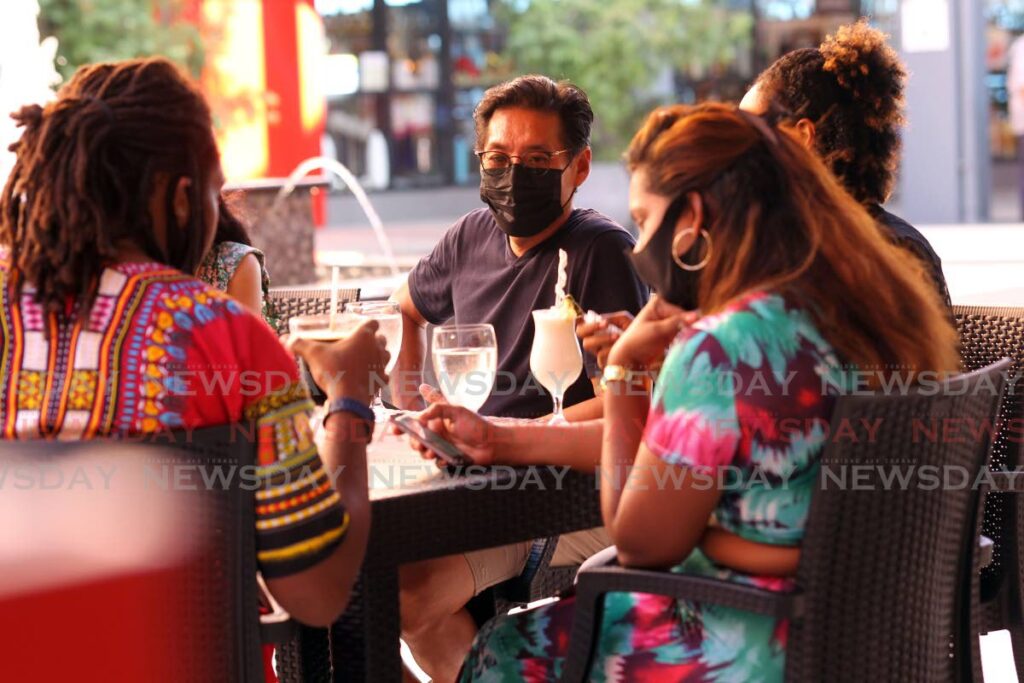
It will be a breath of fresh air for businesses and citizens alike come July 17, when the mask mandate is lifted. For the last two years, staff and patrons alike have been required to wear masks, face coverings or face shields, in an effort to stymie the spread of covid19.
From next Sunday, people will no longer have to wear face coverings, with certain limitations, and will be able to move freely and interact in businesses, restaurants and on the streets without fear of being fined for breaching the public health protocols.
The lifting of the mandate is another sign of things returning to normal as Trinidad and Tobago and the world continue to push back against the effects of the pandemic. But as the virus persists, businesses may have to find a balance between giving people their freedom and protecting themselves, their employees and their patrons.
Masks on
In August 2020 at the height of the pandemic, authorities in TT implemented the mask mandate along with several other public health policies which included limitations on group gatherings, bans on gathering in public spaces, limitations on times during which businesses could operate and limitations on how many people could be transported in a vehicle.
Regulation 7 of the public health ordinance said that no person shall, without a reasonable excuse be in public without wearing a face mask, face shield or face covering. It said that the mask should be worn in a manner that it covers the mouth, nose and chin.
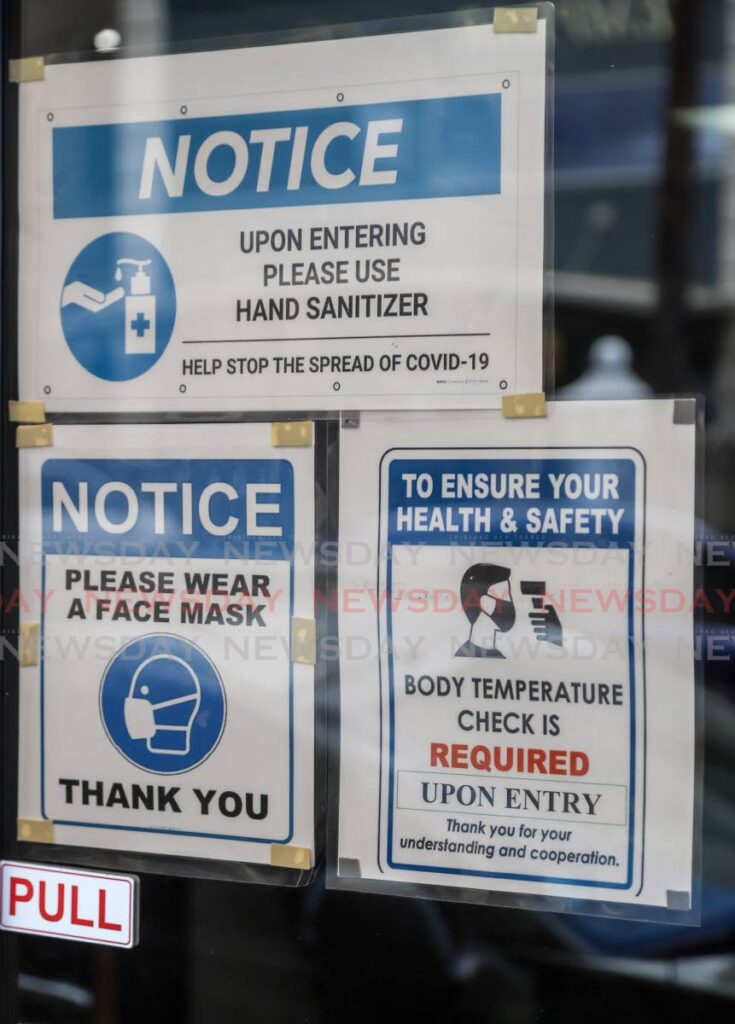
Children under the age of eight were exempt from the wearing of masks but outside of that, parents, guardians or people who were responsible for the child would have the responsibility to ensure that the child has and wears a mask. Businesses were required to take on a “no mask, no service” policy and turn away any person who did not wear a mask at their establishment.
People who contravened the mask mandate would be fined $1,000 in the first instance. In the second instance, a person could be fined $2,000 and up to $5,000 in further instances.
In 2021 the TTPS revealed that it issued 16,427 tickets to people not wearing masks, garnering a total of $1.6 million.
As vaccines became available, government established “safe zones” in businesses, especially in the service industry which required people to provide proof of being vaccinated as well as strict adherence to sanitation and temperature checking policies. Even then, as long as an individual was not eating or drinking, patrons, management and staff in businesses were still required to wear masks.
Last week Minister of Health Terrence Deyalsingh said the mask mandate would be lifted. He, however, noted that a risk-based recommendation for vulnerable groups and special populations would be done to make recommendations on which people should still be masked.
During the Ministry of Health’s weekly media conference last Wednesday, Deyalsingh suggested that unvaccinated people, the immuno-compromised, the elderly and pregnant women should still wear masks when out in public.
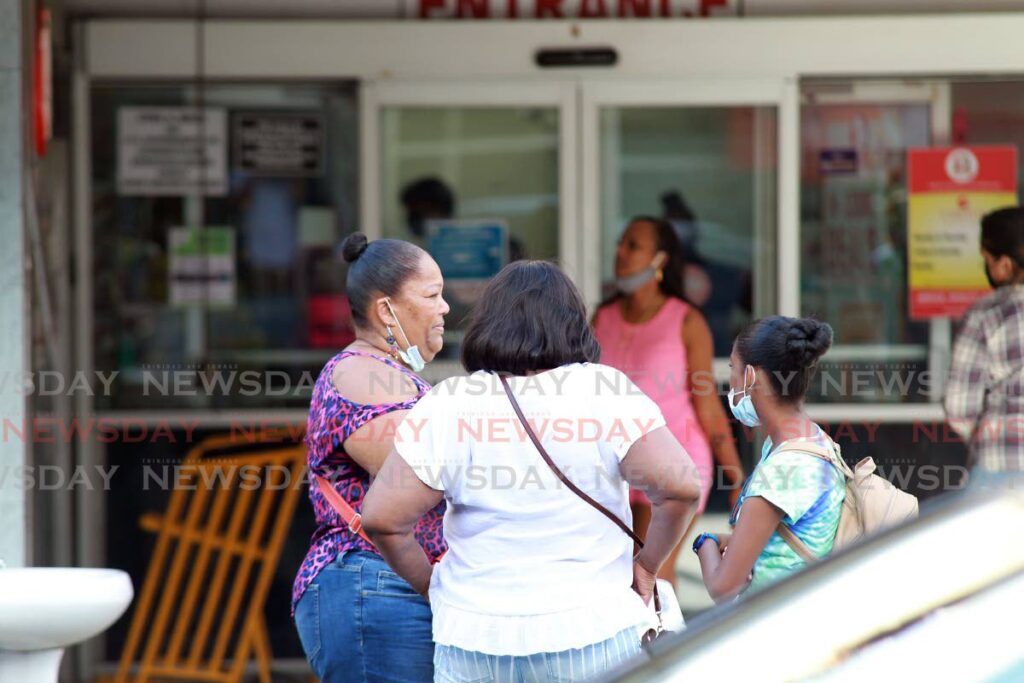
Masks would also be recommended in geriatric homes, children’s homes, places of worship and other indoor areas where social distancing would be difficult.
On Wednesday, Chief Medical Officer Roshan Parasram advised on the levels of risk that people should be aware of when deciding whether or not to wear a mask.
He said people should look at factors such as whether the gathering is indoors or outdoors and if there would be proper ventilation. He said people should also consider their own personal risk to exposure to the virus, whether they are vaccinated or not and whether they could find themselves in a crowd. He said that people should also consider whether there would be vulnerable people at the gathering and if other people are complying with other public health measures.
He added that mask wearing will still be encouraged in places where there would be high crowds such as retail stores, cinemas and theatres, public transportation hubs, ports of entry and buildings with a high concentration of people.
"Because of the close interplay of people they cannot maintain that social distance. It is a closed environment in most instances. There is some recirculation of air in some instances as well."
He noted that the same settings could pose different risks to different people. For example a grocery or supermarket at peak hours may pose a low risk to consumers but a high risk to employees who would interact with a high number of people.
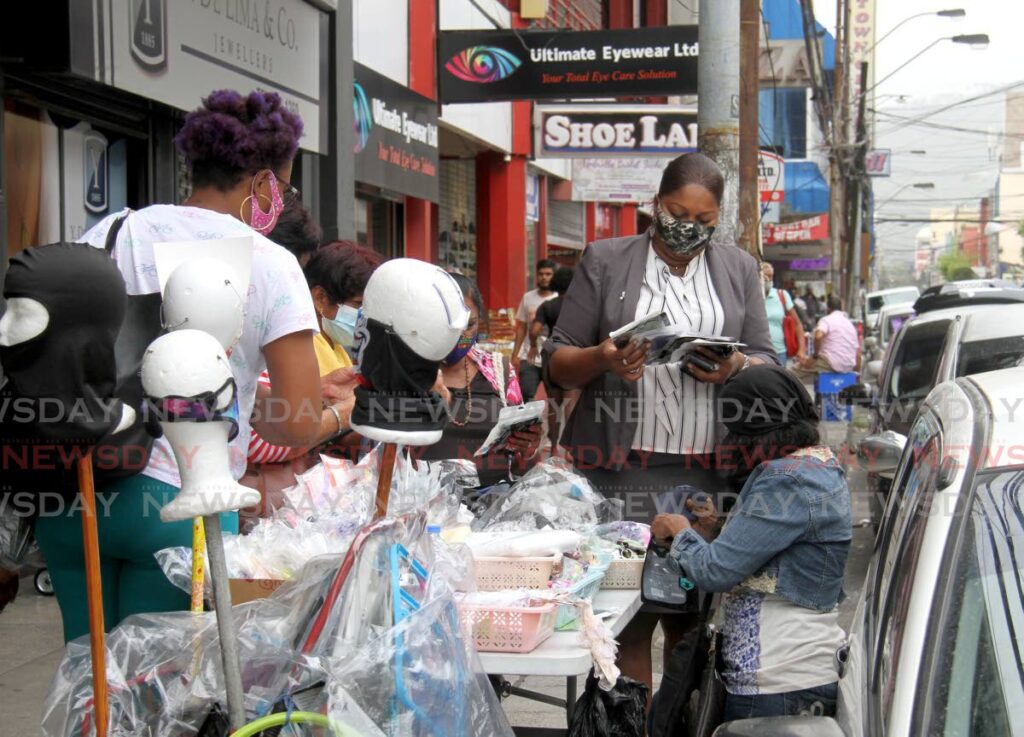
"Physical distancing, masks and screens remain important for those particular individuals. It all depends on the length of time you spend in that environment," Parasram said.
He said, with the removal of the mask mandate, other measures of protection including social distancing, respiratory hygiene, physical distancing and, most importantly, staying at home when one has flu-like symptoms are all the more important.
Businesses: It’s about time
The announcement of the removal of the mask mandate has been welcomed by businesses according to various business associations.
Jai Leladarsingh, co-ordinator of the Confederation of Regional Business Chambers told Business Day that it was not only welcome but it should have been implemented sooner.
“Other countries have taken the position where they have removed their masks. This should have been done months ago in TT. I don’t know why the policy remained in place when we should have kept in step with the world.”
He said the greatest relief for businesses connected to the confederation came when the economy re-opened, but for customers and patrons the removal of the mask mandate would be of a greater benefit.
“The mask wearing was seen as an inconvenience to many customers and employees,” he said. “It also served as an impediment to the restaurant businesses. So now that it has been fully removed we feel that we will see a faster return to normal.”
Ibrahim Ali, secretary of the San Juan Business association shared the same view – that the mask policy should have been removed earlier.

“What we recognised that the world and, in some cases, countries in our own region moved quickly with the removal of mask-wearing policies. It was dropped in many states in the US and in Canada a while ago. But we still decided to restrict members of the public, although when we look at mass gatherings, there is no mask-wearing.
"When we look at shopping areas, you can see a lot of people walking the streets with their masks not being worn properly – they are wearing the masks under their noses or on their chins.”
“So it is a restriction that people are not adhering to.”
Although some saw it as an inconvenience, Employer’s Consultative Association of TT CEO Ronald Ramlogan said, at the workplace level, there was no significant resistance to the policy.
“Most of the population understood this was a necessity in our fight against covid19,” he said.
“More importantly it was an effort to preserve lives and livelihoods.”
'Food handlers should still wear masks'
The ECA said, while the removal of mandatory mask wearing policy will take effect from next week, TT and the rest of the world is not completely out of danger.
Ramlogan said although TT is moving closer toward returning to normalcy, the lifting of the mask wearing restrictions should not be seen as an opportunity to throw caution to the wind.
The ECA is reinforcing the importance of personal responsibility when in public or in enclosed spaces with other people.
With regard to employers, Ramlogan said there was no reason why employers cannot continue to enforce mask-wearing policies in each individual workplace.
“Employers still have a general duty under the Occupational Safety and Health Act to maintain a safe and healthy workplace,” Ramlogan said.
“This means that each workplace should assess their individual risk levels to determine if or how to adjust their mask-wearing policies.”
Ramlogan said the level or risk can be based on available space to allow for physical distancing, proper ventilation, or expected levels of contact or exposure to customers and general public. He added that the mask-wearing policies should not be discriminatory.
Ali called for the Ministry of Health to emphasise that food handlers should still wear masks.
“From the doubles vendor to restaurants, people who work in kitchens should be mandated to wear hair nets and masks. Just because the restrictions are lifted, proper health and sanitation practices should not go out the window. It should remain as something that we should continue to maintain our health precautions.”
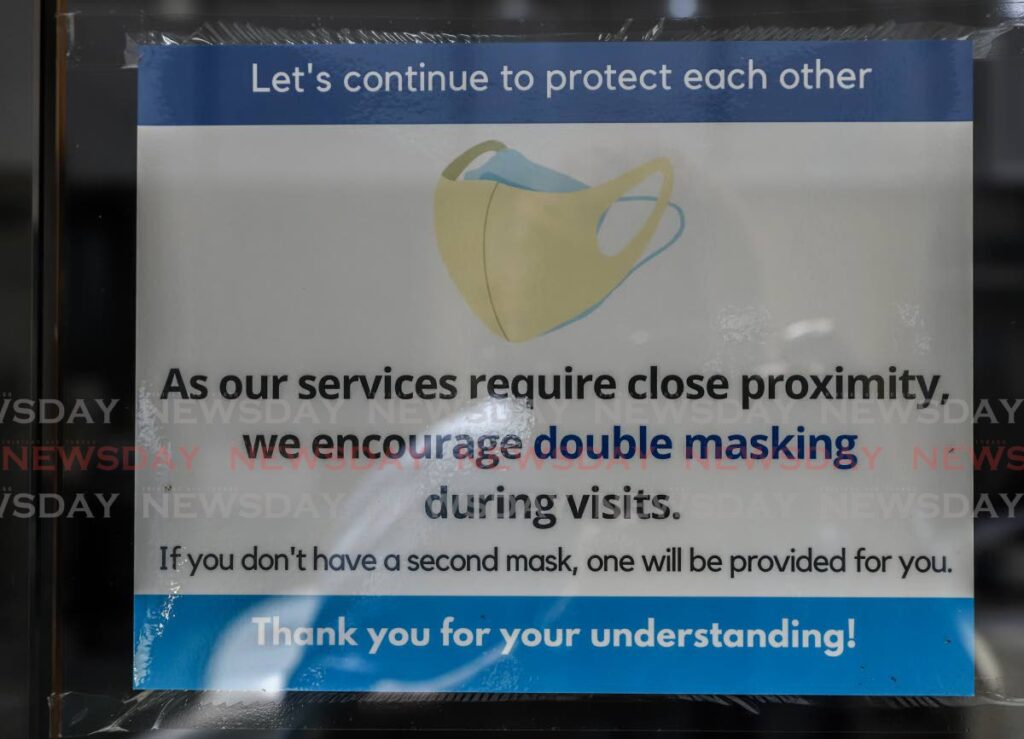
Leladarsingh added that businesses or offices which have air conditioning to regularly maintain the air conditioning units. He also encouraged people who had not been vaccinated to take the jab.
“I think vaccination is what gives people a chance against the virus and its variants. Other than that, mask-wearing should be optional. People could go in to an office with 20 other people and if one or two are compelled to wear the mask there should be nothing to stop them. And, on the other hand, (for) those who do not want to wear them, there should not be any other compelling action.”
TT Barkeepers and Operators Association (BOATT) president Satesh Moonasar said, from next week, the wearing of masks should be about an individual’s personal choice.
“It should be left up to personal choice. It should be left up to the individual businesses to decide on their own mask-wearing policies. From a patron’s standpoint, you will see that many people choose not to wear the masks. There are some that may be a little more aware of the situation and would decide to wear the masks but it boils down to personal choice, whether it is an employee or a patron.”
The ECA said, ultimately, open and continuous dialogue and information-sharing with all employees is recommended.
“Dialogue with recognised majority unions are necessary where they exist, as workplaces try to chart the way forward in response to changes that may occur in our public health situation and related regulations,” Ramlogan said.
“The ECA supports the continuation of conducting temperature checks and requiring hand washing and sanitising, but again, this will be dependent on individual organisations, their own risk profile and their financial realities.”

Comments
"Mask off: Business excited for the removal of mandate"